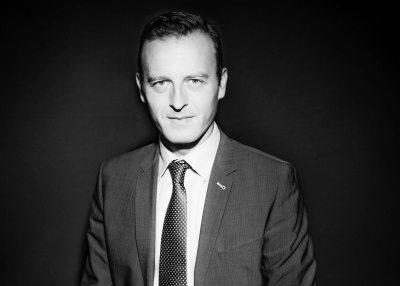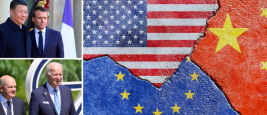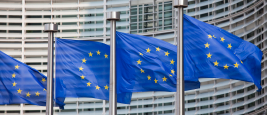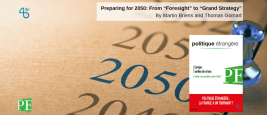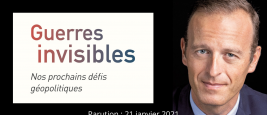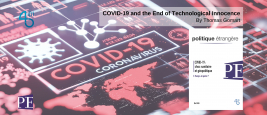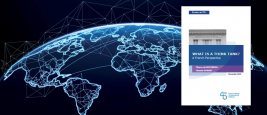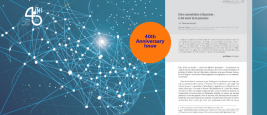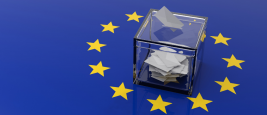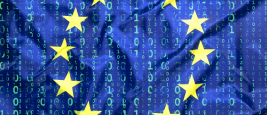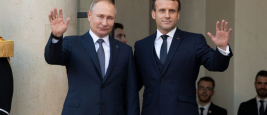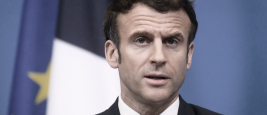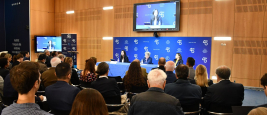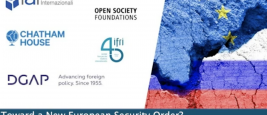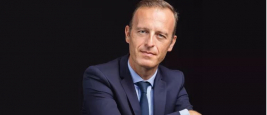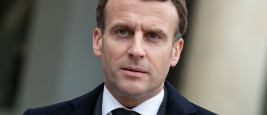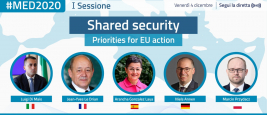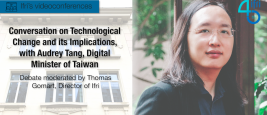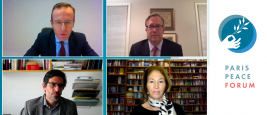Thomas GOMART
Director of Ifri
Research Interests:
- International relations
- Post-Soviet space
- French diplomacy
- Energy issues
- Digital gouvernance
- Geopolitics and security
.
Thomas Gomart was appointed Director of the French Institute of International Relations - Ifri after serving as Director of strategic development from 2010 to 2015 and founding and directing Ifri’s Russia / NIS Center from 2004 to 2013. Thomas Gomart holds a PhD in the History of International Relations from Paris I Panthéon-Sorbonne and an EMBA from HEC (Paris). Prior to joining Ifri, Thomas Gomart worked at Marne-la-Vallée University (1996-1999) and for the French Ministry of Defense. He has also been Lavoisier Fellow at the State Institute of international relations (MGIMO – Moscow, 2001), Visiting Fellow at the Institute of Security Studies (European Union – Paris, 2002), and Marie Curie Fellow at the Department of War Studies (King’s College – London, 2003).
As a researcher, he focuses on digital governance, country risk, Russia, and think tanks. He recently published Notre intérêt national. Quelle politique étrangère pour la France? (ed., with Thierry de Montbrial), Editions Odile Jacob, 2017; L’affolement du monde - 10 enjeux géopolitiques, Editions Tallandier, 2019 (Awarded the Prix Louis Marin and Prix du Livre de Géopolitique); “What Is A Think Tank? A French Perspective”, Etudes de l'Ifri, November 2019; « Le COVID-19 et la fin de l'innocence technologique », Politique étrangère, vol. 85, n° 2, Summer 2020; Guerres Invisibles. Nos prochains défis géopolitiques, Editions Tallandier, 2021 and Les ambitions inavouées. Ce que préparent les grandes puissances, Editions Tallandier, 2023.
Export restrictions, economic and financial sanctions, politicization of monetary and financial choices, screening of inward and outward foreign direct investments, exceptional customs duties, and state interventions in sectors deemed strategic: the political vise is tightening around...
As French President Emmanuel Macron (accompanied by Ursula von der Leyen) is on a state visit to China, some twenty Ifri researchers decipher the stakes of the U.S./China/Europe strategic triangle.
Relations between southern European member states have often been marked by a loose cooperation or, worse, by logics of competition. Precisely when regional groupings within the European Union are increasingly shaping the agenda, these dynamics have hindered the capacity of France, Greece...
China and the United States both have a “grand strategy”: Beijing aspires to be the world’s leading power in 2049, while Washington plans to remain primus inter pares.
What are the next geopolitical challenges of the century? The global pandemic has altered the equilibrium between Asia and the West and sealed the rift between China and the United States, accentuating the world’s shift towards the East. On this polarized chessboard, two fault lines converge:...
COVID-19 acts as a catalyst in international relations.
The French Institute of International Relations (Ifri) celebrated its 40th anniversary in the spring of 2019, in a completely different environment to when it was founded, which was dominated by the competition between the two “superpowers” of the time, the United States and the...
The notion of power has long been a topic of study in international relations. In the coming decade, the evolution of power will be characterized by the dynamics of concentration and dispersion.
From May 23 to 29, over 300 million Europeans are set to elect a new Parliament for a five-year term.
Data no longer should be understood as a sole commercial or regulatory issue, but rather as an actual stake of international politics. Mastering data is an issue involving different set of actors, with diverging motivations: it is a sovereignty and national security stake for states, a...
The European Union and NATO have promised a path to membership for the embattled country. But real partnership will hold risks and benefits for both sides.
President Emmanuel Macron’s nuanced position on the war in Ukraine is part and parcel of yet another French specificity, an attitude towards Russia which is unique in Europe. Macron prides himself on being a moderate among western warmongers.
Ukraine is facing a grim festive period. Civilians are hunkered down in below-freezing conditions with periodic power as Russian missiles and drones continue Moscow's punishing infrastructure offensive. Ukrainian troops, bogged down by mud, are still pushing forwards gradually in the south and...
Annual conference of Ifri's Center for Asian Studies. The war in Ukraine has marked the return of high-intensity conflict in Europe and represents a profound, structural shift in the region’s strategic environment. It also takes place against a backdrop of a decades-long...
This online discussion takes stock of how Russia’s invasion of Ukraine has changed national foreign and security policies and how these shifts affect Europe’s security architecture.
Thomas Gomart is a French historian and director of the French Institute of International Relations (Ifri). In an interview with Le Monde, he analyzed the new global strategic situation and gave a first assessment of the disruption caused by the Russian aggression in Ukraine.
...For years, French President Emmanuel Macron butted heads, bit his tongue in frustration, and lashed out at former President Donald Trump, who refused to yield an inch to his entreaties about global cooperation. Trump pulled the U.S. out of the Iran nuclear deal and the Paris Agreement on...
The director of Ifri, Thomas Gomart, moderated a high level panel with several foreign affairs ministers during the "Mediterranean Dialogues" conference organized by Italian think tank ISPI.
Audrey Tang, Digital Minister of Taiwan, discussed the impact of technological changes such as 5G, contact tracing and Internet governance in an online debate.
The director of Ifri, Thomas Gomart, moderated a panel at the Paris Peace Forum on US foreign policy after the 2020 elections.



